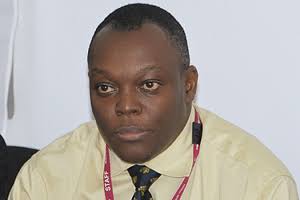The Nigeria Centre for Disease Control (NCDC) stated that it was analyzing outbound and inbound travelers from countries where the Omicron variant of COVID-19 had been confirmed.
Dr. Ifedayo Adetifa, Director-General of the NCDC, stated this at the Presidential Steering Committee (PSC) briefing on COVID-19 on Monday in Abuja.
Adetifa stated that the agency would continue to sequence positive samples from the cases and communicate with the public as soon as possible.
“The NCDC will continue to collaborate with the Federal Ministry of Health Ports of Entry team to ensure that inbound and outbound travelers are tested and protocol-compliant.”
“As the holiday season approaches, please avoid all non-essential travel and take the precautions that will, in fact, save even one life.”
“Your life is important, as are the lives of our loved ones and strangers,” he explained.
According to Adetifa, most Nigerians will be thinking about the new variant and the potential impact it will have on travel, vacation plans, and the national response to date.
He emphasized the importance of public health and social measures in the country, stating that COVID-19 was real and dangerous.
Adetifa stated that, despite the high recovery rate, COVID-19 had resulted in painful and unnecessary deaths, particularly among the elderly and the most vulnerable.
He claimed that the disease’s global spread and ongoing devastation, which has resulted in full Intensive Care Units in some countries, case surges, the reintroduction of lockdowns, and other symptoms, was proof enough that it was not business as usual.
Nigerians, he believes, must re-emphasize the importance of wearing face masks.
“I am aware of pandemic fatigue.”
“It has been a very long time, over 20 months since the pandemic was declared, and this can cause fatigue in anyone.”
“I commend Nigerians for bearing the pandemic so bravely and for continuing to make ends meet and live life with hope in the face of adversity.”
“However, I recognize that we can and must do much better in terms of adhering to public health and social measures,” he said.
Adetifa explained that wearing a face mask was to protect oneself from potential air droplets that might be transmitted from person to person when speaking, singing, and so on.
He stated that it was sometimes difficult to tell when someone was infected because the virus could be present without symptoms.
“The importance of hand hygiene can be traced back to Ignac Semmelweis, known as the Father of Hygiene.”
“His observational studies helped to reverse high maternal mortality.”
“These studies revealed that the unwashed hands of doctors who performed autopsies on cadavers and then proceeded to deliver children of mothers in labor were to blame for the high mortality rate.”
“This happened over two centuries ago.”
“We now have even more advanced scientific knowledge to detect viruses that can be transmitted by poor hand hygiene,” he said.
According to the director-general, those who are fortunate enough to have the means should use clean water and soap to stay safe.
“Please, please, please use this simple method of maintaining your health.
“When you frequently touch surfaces, shake other people’s hands, and so on,” he advised. “Wash your hands or use an alcohol-based hand sanitizer if water is unavailable.”
Adetifa urged Nigerians to be their brothers’ keepers, to look out for those who do not have access to clean water, soap, or hand sanitizers, to educate them, and, if possible, to provide them with needed supplies.
Large gatherings without social measures, he warned, must be avoided because they pose a significant risk to the lives of loved ones with co-morbidities, older loved ones, strangers whose complications they were unaware of, and, of course, the country’s progress in the pandemic.
Adetifa went on to say that the COVID-19 Health Protection Regulations 2021, which President Muhammadu Buhari signed earlier this year, were indeed valid.
He mentioned that COVID-19 vaccines were now available.
“We will not fail to inform you that they are safe and effective in reducing the risk of severe disease and death.”
“If you discover that you have come into contact with a confirmed case of COVID-19, please proceed with caution and ensure that you are tested.”
“We will continue to ensure that laboratories are maintained, open for testing, and easily accessible,” he said.
According to the News Agency of Nigeria (NAN), the Omicron variant was discovered during testing on travellers from West Africa on November 9 in Botswana.
On November 24, the World Health Organization (WHO) was notified of the identification of cases among a group of young unvaccinated people in South Africa.
While this variant has yet to be detected in Nigeria, it has been reported in the United Kingdom, Israel, Botswana, Hong Kong, Germany, Belgium, Italy, and elsewhere.
However, no deaths have yet been linked to this new variant.
This variant has been detected in 126 genomes around the world and published on GISAID. (GISAID is a global sharing mechanism for sequencing data.)
According to the independent Technical Advisory Group on SARS-CoV-2 Virus Evolution, the SARS-CoV-2 variant has now been designated as a variant of concern (VOC) and named Omicron by the WHO (TAG-VE).
